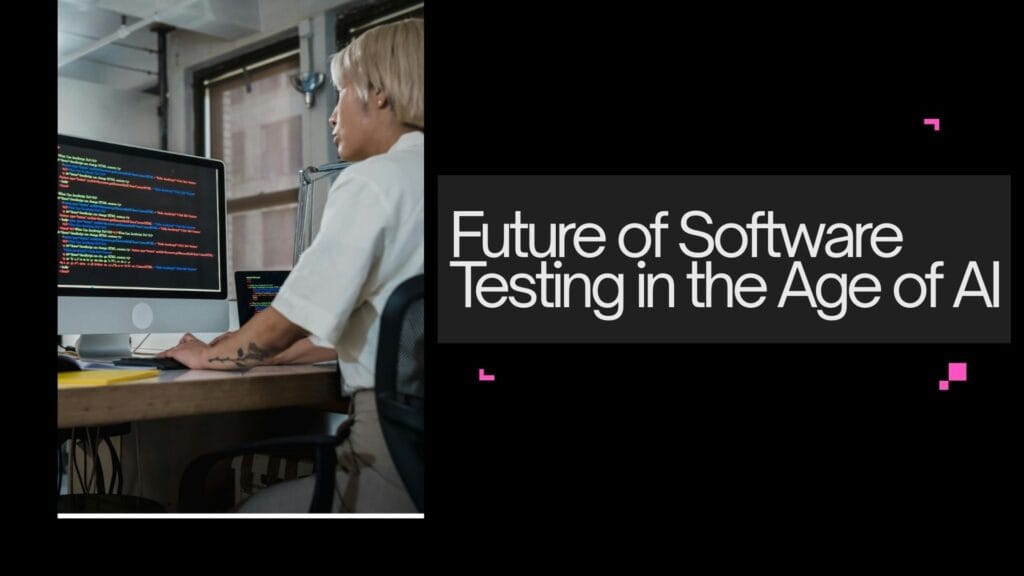Most importantly, now Generative AI testing is becoming very popular. There will be demand for AI testers in the future. But AI testing is not just about theory; it requires practical knowledge of Generative AI application development. You need knowledge of Generative AI application development. This is a very rare and interesting trend. So, we started a batch. Around 5 or 6 AI testing companies called and asked, saying they need AI testers. So the demand seems good, maybe it’s still in the starting stage.
Many people want to know:
“We are currently working in the software industry as test engineers, as quality analysts. There are lakhs of people working in IT as testers. But when it comes to how to upskill, there is a lot of confusion. When working professionals from the testing field come, they ask this question: What is really the future of testing?”
Concerns from Testers
Many testers raise these common concerns:
- “Will we be able to survive testing in the future?”
- “How will AI affect testing?”
- “How will the recession affect testing?”
- “Are there layoffs for testers?”
- “What should we do so that we are not affected in the future?”

Many testers are facing layoffs across testing departments. So, what will be the future of testing?” That’s why I started writing down some concerns from the testing point of view.
So, from the testing point of view, if you want to sustain and have future growth, what should you do?
Steps to Sustain and Grow in Testing
1. Learn Programming
The very first thing testers in this field must do: learn programming. Not to become a developer, but at least start with unit testing or learn automation tools easily. Many people come and ask, Why should we learn Selenium? Or should we learn some other automation testing tool like Cypress or Playwright?” First, pick a programming language like Java, Python, C#, or JavaScript. Build basic logic and learn to write code. Programming knowledge is important for testers.
2. Learn Automation Tools
But now with AI and automation, remember, test automation has been there since 2001, more than 25 years, with tools like QTP. So the first thing, especially for manual testers: whatever testing you’re doing, learn programming. You don’t need advanced Java or frameworks right away, but at least learn basic programming. Second, learn automation tools. Now, many interesting tools are coming up. For example, hiring demand is high for Playwright and also for Cypress. Everyone already puts Selenium in their resumes, so instead, put Selenium + Playwright, or Selenium + Tosca, or Selenium + Cypress. That combination makes your profile stand out.
Everyone knows Selenium, but very few people know Playwright or Cypress; your profile becomes rare in the market. So don’t just stop at one tool like Selenium. Of course, learn Selenium if you don’t already know it, but don’t limit yourself. Explore multiple automation tools and frameworks. If you know one automation tool, learning another is much easier.
3. Avoid Overconfidence as Manual Testers
Many manual testers make this mistake: they think, “I know the application very well, I know it in depth. I can play with the application, I know the business flow, and I know the client and the end user. Even with my eyes closed, I can find bugs. I’ve been testing this application for 3 years, without me, it won’t get released into production.” They become overconfident. That mindset is very common among testers, especially manual testers. This confidence creates a comfort zone.
4. Learn Cloud Basics
Cloud has become a very fundamental subject. Whether AWS or Azure, testers must have basic cloud knowledge. Also, some integration tools, like GitHub or Jenkins, at least the basics, you should know. And most importantly, now Generative AI testing is becoming very popular. There will be demand for AI testers in the future. But AI testing doesn’t mean just learning some AI theory. You need Generative AI application development knowledge. This is a very rare and interesting trend.
5. Gain DevOps Knowledge
Now the trend is that every tester is also expected to know a bit of DevOps. You don’t need to master all DevOps tools, but having DevOps knowledge will help you build CI/CD pipelines for the automation scripts you write. That will improve effectiveness and reduce execution time. Don’t stop at just testing.
6. Microservices and API Testing
For the last 10 years, API test automation has become extremely important. Don’t ignore API test automation. In future AI projects, also, from our point of view, services will be important. Service testing, microservices testing, and API automation testing are essential. There are many frameworks in API automation testing, too. You must practice it properly.

Types of AI Testing
There are many types of AI testing:
- Using AI for automation testing.
- Testing AI systems themselves.
- Testing AI hardware integrations.
Categories of AI Testing
So AI testing is not just one subject. It can mean:
- Using AI to simplify automation testing, like regression testing.
- Testing AI applications such as chatbots or deep learning apps.
- Testing issues in AI + hardware integrations.
So AI testing has multiple categories.
Importance of AI Knowledge
AI knowledge is necessary not only for testers but for every human being. But since we are in IT and testing, we must learn how to use AI in different ways: how to apply AI in automation, how to simplify regression testing with AI, how to use AI for defect tracking, bug finding, and defect retesting. This kind of knowledge is very important. No one will directly teach this. But if you attend Generative AI or development classes, you will get ideas on how to apply it in testing.

Functional and Non-Functional Testing
- Functional testing includes both manual and automation.
- Non-functional testing includes performance and security.
If you can handle multiple areas, you will be considered an all-round tester.
Now, many product-based companies have openings for testers, and they expect you to do functional testing, automation, API testing, and performance testing as well. If you can do all of these, you will get opportunities in product-based companies instead of only in service-based companies. That’s an important point.
Certifications for Testers
Also, certifications play a key role in:
- Domain certifications
- ISTQB certifications
- Automation tool certifications
- Technology certifications
If you remember these points, you can get salary hikes, growth in testing, and sustain for many more years.
Conclusion
If any of your friends are working in testing, struggling with layoffs, not growing in their career, or stuck with only manual testing, please forward this blog to them. That information may help them. For more tips, guides, and updates, visit BuzzIndie.